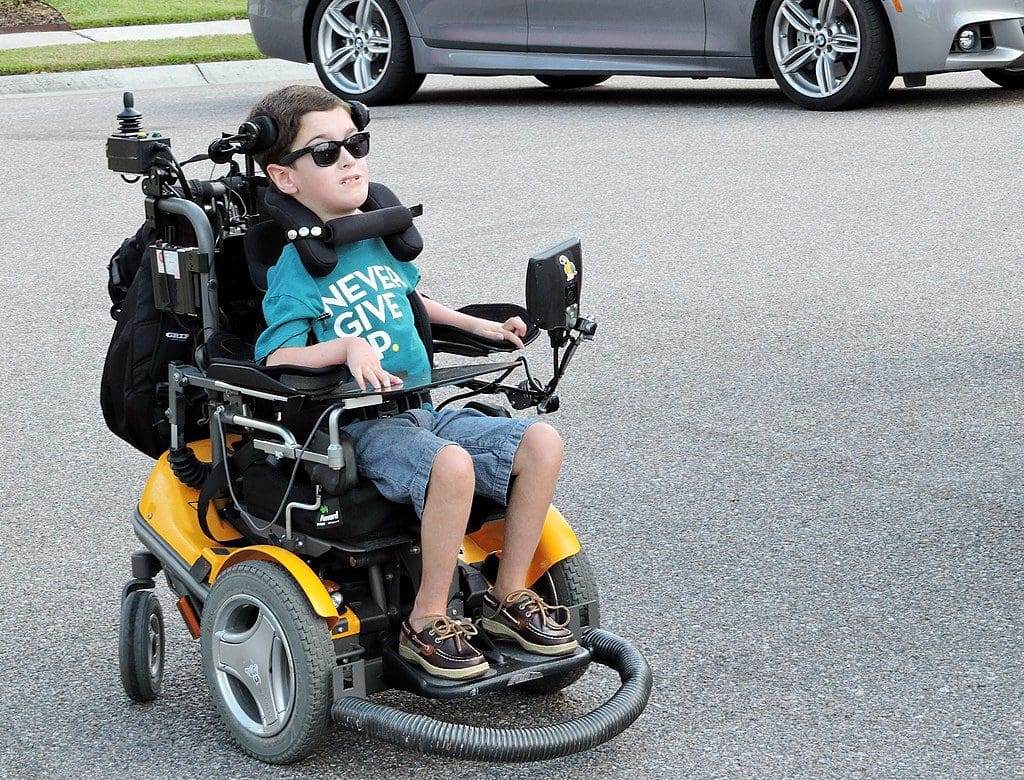Dealing with Spinal Muscular Atrophy is one thing, but explaining this issue to your loved ones can be very difficult. Many parents who have children with SMA do not wish to place an unnecessary burden on their loved ones. , and they worry about how to break the news in a way that won’t be distressing for these individuals. Some parents might even choose not to share the information at all. Of course, you should always be honest and open with your loved ones, even if it means confronting them with an unfortunate situation. You cannot realistically hide your child’s condition from those you love. So how do you break the news?
The answer depends mostly on your unique situation, priorities, and the personalities of your loved ones. Some might prefer a more straightforward approach, while others might benefit from a more gradual, gentle confession that allows them to process the information slowly. Whatever the case may be, this is something you should plan out and consider before taking action. With the right approach, you can make this revelation something easy to absorb and accept for your loved ones. Here are some more specific tips on how to explain SMA to your loved ones:
Table of Contents
Take an Informative Approach
One of the best ways to explain SMA to loved ones is to take an informative approach. When you focus on the fact and attempt to educate your loved ones, you take many of the distressing emotions out of the equations. Approach the situation in a logical, reasonable manner – almost like you’re a doctor who is explaining the situation to a colleague. This will show your loved ones that you are dealing with your child’s diagnosis well and that they needn’t worry about your emotional state.
So, what kinds of facts should you focus on? For starters, you might want to let them know what type of SMA your child has. There are many different SMA types, and it could be beneficial for your loved ones to understand what your child has been specifically diagnosed with. For example, symptoms for SMA Type 1 are very different compared to the symptoms for SMA Type 4. You might also go over some of the basic facts associated with SMA. For example, you could let them know that although SMA is rare, about 1 in 50 people in the US is a genetic carrier of SMA.
Let them Know What to Expect
It might also be helpful to explain some of the common symptoms of SMA. This will help loved ones know what to expect going forward. These include decreased muscle tone, limited mobility, breathing problems, problems eating and swallowing, delayed gross motor skills, and scoliosis.
When a loved one understands that these symptoms are associated with SMA, they will not be shocked to see them. Sometimes, understanding the symptoms helps individuals accept them. With all that said, symptoms can vary significantly depending on what type of SMA you have – so you might want to mention that as well.

Assure them that Your Life Expectancy is Not Affected
When discussing SMA with your loved ones, it might also be a good idea to mention that life expectancy is not really affected. When someone hears that your child has a rare disease, they might jump to conclusions and assume that you’re telling them that they only have a few years to live. You might want to stress that your child’s diagnosis has no impact on their life expectancy and that your child is here to stay.
Remind Them That No One is to Blame
Another important aspect of this is to remind your loved ones that no one is to blame. Highlight the fact that SMA is a genetic disease, which means that you cannot have realistically avoided this eventuality. You also cannot blame parents, who may have been completely unaware that they were carriers. Why is this important? Well, it stresses the fact that you’re not taking a “victim” mentality, and you’re moving forward without getting caught up in the root cause of your child’s SMA.
Show Them How to Help
You might also want to give your loved ones some direction when it comes to helping and assisting. It is completely up to you how much of a role your loved ones play in your child’s upbringing. If you feel that a certain loved one will play a significant role in your child’s life, you might want to help them understand how to interact with your child in a safe, effective manner.
Simply being there for your child is often enough to make a real difference. Having a strong support system in place is crucial during this period, and it’s essential that your loved ones understand this. If these individuals ask how they can help, you can tell them to be available to talk and provide emotional support. In most cases, these loved ones will be more than happy to be there for you when you’re feeling unsure or worried.
Set Boundaries
Last but not least, it might also be a good idea to set some boundaries. We mentioned earlier the importance of not taking a “victim” mentality. Unfortunately, your loved ones might see you as a victim regardless of your own approach to this situation. You can deal with this by gently reminding them that you are maintaining a positive attitude and that you would prefer if they didn’t express pity or excessive distress due to your situation.
You might also want to deal with this on your own, without too much help from other people. This is totally fine! It’s really up to you how you approach this situation, and it’s essential to feel a measure of control and dignity. When you inform your loved ones of your child’s condition, you might also want to let them know that you’ve “got it covered,” and that you’d prefer to deal with this on your own for the most part. Remember, communication is always vital in these situations.
Featured Photo by RODNAE Productions from Pexels




